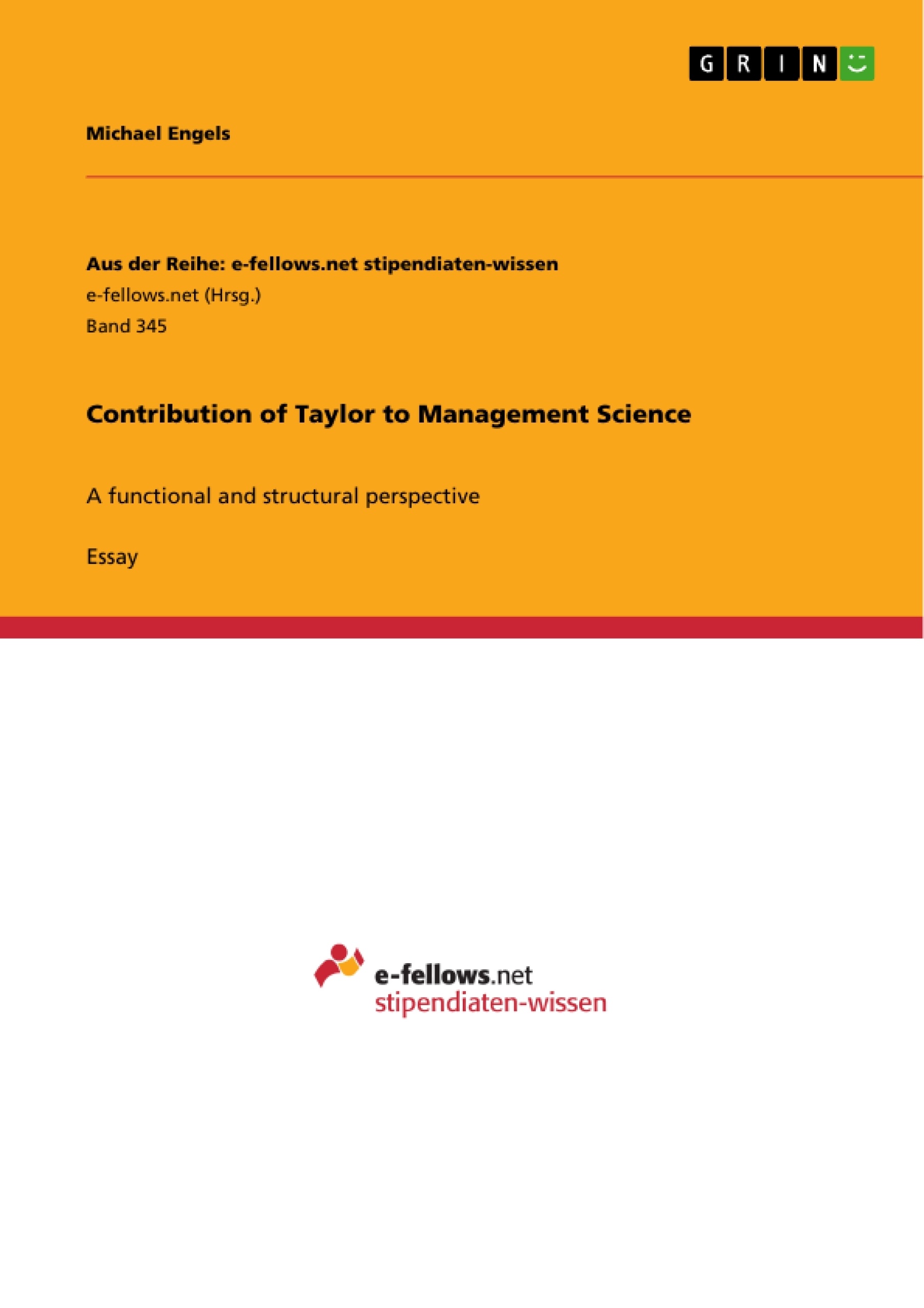In order to critically assess the contribution of Taylor’s theories to management science a three step approach is necessary. First, the theoretical work of Taylor is analyzed in order to clearly separate objectives, assumptions and tools. Second, the structural contributions of Taylor and his work are presented and reviewed critically. Lastly, the functional impact of management science is assessed.
Table of Contents
- Scientific Management and Frederick W. Taylor
- Structural Contributions of Scientific Management
- Humans as Rational Utility Maximizers
- The ‘One-Best-Way’ Principle
- The Objective of Higher Prosperity
- Functional Contributions
- Organizational Theory
- Operations Management
Objectives and Key Themes
This essay critically analyzes the impact of Taylor's theories on management science, separating the objectives, assumptions, and tools of scientific management. It examines the structural contributions of Taylor and his work and assesses the functional impact of management science on subsequent research and practices.- Scientific Management's Core Objectives and Assumptions
- Structural Contributions of Scientific Management to Management Science
- Functional Contributions of Scientific Management to Management Practices
- The Influence of Taylor's Theories on Modern Management Practices
- The Importance of Understanding the Different Components of Scientific Management
Chapter Summaries
The first chapter introduces the core objective of scientific management: to achieve maximum prosperity for both employers and employees. It outlines three key assumptions: humans as rational utility maximizers, the convergence of interests toward productivity increases, and the 'one-best-way' principle. The second chapter examines the structural contributions of scientific management, focusing on three key assumptions: the rationality of managers and workers, the 'one-best-way' principle, and the objective of higher prosperity. It discusses how these assumptions have influenced various fields of management research. The third chapter delves into the functional contributions of scientific management, highlighting the resemblance of specific management tools to scientific management principles. It explores the influence of scientific management on organizational theory and operations management, emphasizing the integration of Taylorist tools into various management practices.Keywords
Scientific management, Frederick W. Taylor, management science, rational utility maximizers, ‘one-best-way’ principle, maximum prosperity, structural contributions, functional contributions, organizational theory, operations management, Toyota Production System, management by objective (MBO), contingency theories.
Excerpt out of 5 pages
- scroll top
- Quote paper
- Michael Engels (Author), 2011, Contribution of Taylor to Management Science, Munich, GRIN Verlag, https://www.grin.com/document/184129




